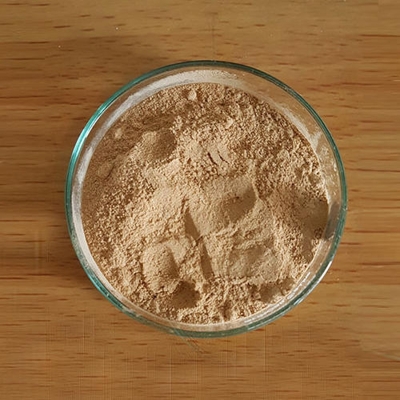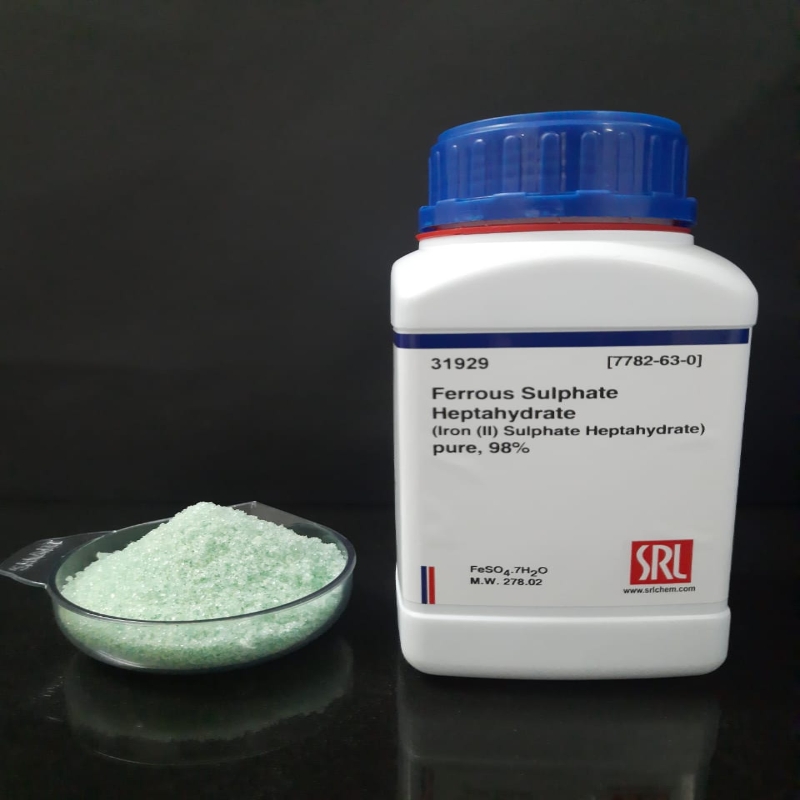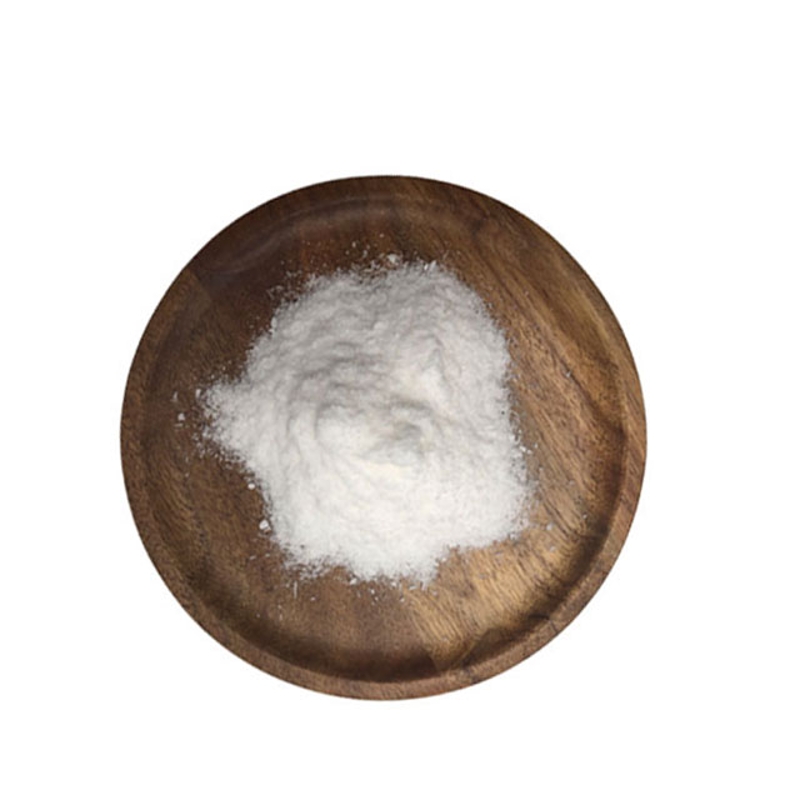-
Categories
-
Pharmaceutical Intermediates
-
Active Pharmaceutical Ingredients
-
Food Additives
- Industrial Coatings
- Agrochemicals
- Dyes and Pigments
- Surfactant
- Flavors and Fragrances
- Chemical Reagents
- Catalyst and Auxiliary
- Natural Products
- Inorganic Chemistry
-
Organic Chemistry
-
Biochemical Engineering
- Analytical Chemistry
- Cosmetic Ingredient
-
Pharmaceutical Intermediates
Promotion
ECHEMI Mall
Wholesale
Weekly Price
Exhibition
News
-
Trade Service
Mantle cell lymphoma (MCL) is a relatively rare subtype of non-Hodgkin lymphoma with strong aggressiveness
.
In recent years, with the emergence of new targeted drugs such as BTK inhibitors, the traditional treatment mode has been challenged.
Exploring a more efficient and less toxic treatment mode to improve patient survival and quality of life has become a current research hotspot
.
At the beginning of the new year in 2022, Yimaitong specially invited Professor Jing Hongmei from Peking University Third Hospital to review the progress of MCL treatment in 2021 and discuss the future research direction of MCL
.
>>>MCL has unique disease characteristics, which make diagnosis and treatment difficult.
MCL is a type of non-Hodgkin lymphoma.
The median age of onset is 60-65 years old.
It is more common in males.
It is divided into classic MCL, indolent MCL, and in situ mantle cell tumor.
(ISMCN) three categories
.
Although the incidence of MCL is only 6% of lymphomas, it has attracted special attention because it combines the aggressiveness of aggressive lymphomas with the incurable characteristics of indolent lymphomas
.
At present, the choice of clinical treatment plan for MCL in China is mainly based on the patient's age.
For patients with good physical condition ≤65 years old, high-dose chemotherapy + autologous hematopoietic stem cell transplantation can be selected to prolong the progression-free survival and overall survival of patients as much as possible; >65 years old Or patients who cannot tolerate high-dose chemotherapy should choose conventional chemotherapy or chemo-free regimen according to their tolerance to conventional chemotherapy
.
Most MCL patients experience a plateau of efficacy for several years after treatment
.
After the plateau period, some patients will relapse.
The disease progresses rapidly and the prognosis is poor.
Therefore, relapse is also a difficulty in clinical work
.
In terms of drug selection, some drugs have been marketed abroad, but not yet in China, which may cause differences in domestic and foreign drug use
.
>>>Accurate stratification is progressing rapidly, helping individualized treatment.
In terms of disease diagnosis and classification, the pleomorphic variant and blastic variant of MCL in the clinical classic MCL are relatively difficult to treat, and the prognosis of patients is poor
.
Abnormal TP53, high positive rate of Ki-67 or central invasion also predicted poor prognosis of patients
.
In the past, the prognosis of MCL patients was mostly assessed by the clinical manifestations, the lymphoma international prognostic score (IPI), and the positive rate of Ki-67
.
With the development of molecular biology technology, diseases such as diffuse large B-cell lymphoma have achieved precise stratification at the molecular level, providing a basis for the formulation of clinical treatment plans
.
Although there are no perfect research results in MCL, some studies at home and abroad have found special genes related to the prognosis of MCL, such as CDKN2A, KMT2D and so on
.
Therefore, clinicians also look forward to the development of molecular biology, or the combination of new detection methods, to evaluate the prognosis of patients in the initial diagnosis and treatment of patients, and to achieve accurate stratification of diseases and precise treatment of patients
.
At present, PET-CT, ctDNA, flow cytometry, MRD detection and other methods have been used clinically, and genes such as TP53, IGHV, CCND-1, and CCND-2 have been included to try to perform molecular biological typing of MCL at the gene level.
This is a very important advance in the diagnosis of MCL
.
>>>New drug research results are numerous and rich in treatment options.
In terms of MCL treatment, the treatment of refractory and relapsed MCL is still a difficult and painful point in the treatment of MCL, especially for patients with refractory relapse at the end-stage
.
The disease progresses rapidly in this type of patients.
After a large number of conventional chemotherapy and some small molecule targeted drug treatment, the prognosis is still poor, and new drugs are urgently needed to improve the prognosis of these patients
.
Subsequently, Professor Jing Hongmei introduced several new drugs and treatment options
.
Research on drugs focuses on three aspects: targeted drugs, CAR-T therapy and combination drugs
.
Antibody drugs in targeted drugs have progressed rapidly, and a large number of research results have appeared
.
Professor Jing Hongmei said that the development of antibody drugs is now in the spring, and new drugs are constantly emerging.
There are more researches on monoclonal antibody drugs targeting CD19 or bispecific antibody drugs targeting CD19xCD3 and CD20xCD3
.
Among the small-molecule targeted drugs, Bruton's tyrosine kinase (BTK) inhibitors are important drugs for the treatment of MCL.
Although they have achieved certain success, there are still some patients who are not suitable for use due to drug resistance
.
After continuous updates and iterations, the second-generation BTK inhibitor LOXO-305 has shown good efficacy in the treatment of C481S-mutated BTK inhibitor-resistant patients
.
Other novel small molecule targeted drugs, such as PI3K inhibitors, mTOR inhibitors, BCL-2 inhibitors, HDAC inhibitors, nuclear export protein (XPO-1) inhibitors, etc.
, have made good progress
.
In addition, protein arginine methyltransferase 5 (PRMT5) is an epigenetic target with clinical potential, and related research results have attracted widespread attention
.
The results of a number of basic and clinical studies have shown that PRMT5 inhibitors have good efficacy in the treatment of MCL, but further exploration is needed
.
Chimeric antigen receptor T cell (CAR-T) immunotherapy has also shown good efficacy
.
In addition to the more studied targets such as CD19, CD20, CD22, and other targets related to immune regulation, such as CD47, related research is ongoing
.
Professor Jing Hongmei said that for refractory and relapsed MCL patients, CAR-T is a relatively good treatment method, but it is necessary to grasp the timing of CAR-T treatment.
Doctors quickly controlled the patient's condition, prepared CAR-T cells in a timely manner for infusion, and fought for a chance to save the patient
.
New drugs continue to emerge, providing multiple options for the formulation of treatment regimens for patients with MCL
.
A number of studies at home and abroad have tried different drug combinations to treat MCL, such as combination therapy with ibrutinib, lenalidomide, CD20 monoclonal antibody, BCL-2 inhibitors, etc.
on the basis of conventional treatment
.
There are domestic studies trying to combine conventional regimens with small-molecule targeted drugs, such as BTK inhibitors, and look forward to their follow-up research results
.
>>>The future MCL research has broad prospects Based on the above content, Professor Jing Hongmei forecasts the future research hotspots in the field of MCL
.
First of all, the precise stratification of MCL is in the exploratory stage.
In the future, some new methods, including new gene sequencing methods, need to be combined to achieve precise stratification of MCL, and individualized treatment will be given according to the prognosis of patients.
This is the future of MCL.
important direction of research in the field
.
In terms of drugs, the second-generation BTK inhibitors LOXO-305 and PRMT5 inhibitors may become the focus of future small molecule targeted drug research, and drugs targeting multiple targets of PI3K, BCL-2, and XPO-1 may also appear more More studies have brought more choices for MCL treatment and medication
.
How to effectively use these drugs for combined therapy, maximize drug efficacy and reduce drug toxicity is what clinicians need to think and explore continuously in the future
.
The application of CAR-T has also greatly improved the prognosis of MCL patients.
How to combine CAR-T therapy with other chemotherapy drugs in the future and whether there are other targets worth exploring are the future research directions of MCL at home and abroad
.
Professor Jing Hongmei Chief Physician, Professor, Doctoral Supervisor, Director of the Department of Hematology, Peking University Third Hospital Director of the CAR-T Cell Therapy Joint R&D Center, Peking University Third Hospital Chairman of the Hematology and Oncology Professional Committee of the Beijing Society of Integrative Medicine Oncology Vice-chairman of the Expert Committee of the Chinese Medical Education Association Vice-chairman of the Lymphoma Special Committee of the Chinese Medical Education Association Vice-chairman of the Youth Committee of the Blood Branch of the Chinese Medical Education Association Professional direction of the members of the blood branch: lymphatic system tumors click "read the original text", let's make progress together
.
In recent years, with the emergence of new targeted drugs such as BTK inhibitors, the traditional treatment mode has been challenged.
Exploring a more efficient and less toxic treatment mode to improve patient survival and quality of life has become a current research hotspot
.
At the beginning of the new year in 2022, Yimaitong specially invited Professor Jing Hongmei from Peking University Third Hospital to review the progress of MCL treatment in 2021 and discuss the future research direction of MCL
.
>>>MCL has unique disease characteristics, which make diagnosis and treatment difficult.
MCL is a type of non-Hodgkin lymphoma.
The median age of onset is 60-65 years old.
It is more common in males.
It is divided into classic MCL, indolent MCL, and in situ mantle cell tumor.
(ISMCN) three categories
.
Although the incidence of MCL is only 6% of lymphomas, it has attracted special attention because it combines the aggressiveness of aggressive lymphomas with the incurable characteristics of indolent lymphomas
.
At present, the choice of clinical treatment plan for MCL in China is mainly based on the patient's age.
For patients with good physical condition ≤65 years old, high-dose chemotherapy + autologous hematopoietic stem cell transplantation can be selected to prolong the progression-free survival and overall survival of patients as much as possible; >65 years old Or patients who cannot tolerate high-dose chemotherapy should choose conventional chemotherapy or chemo-free regimen according to their tolerance to conventional chemotherapy
.
Most MCL patients experience a plateau of efficacy for several years after treatment
.
After the plateau period, some patients will relapse.
The disease progresses rapidly and the prognosis is poor.
Therefore, relapse is also a difficulty in clinical work
.
In terms of drug selection, some drugs have been marketed abroad, but not yet in China, which may cause differences in domestic and foreign drug use
.
>>>Accurate stratification is progressing rapidly, helping individualized treatment.
In terms of disease diagnosis and classification, the pleomorphic variant and blastic variant of MCL in the clinical classic MCL are relatively difficult to treat, and the prognosis of patients is poor
.
Abnormal TP53, high positive rate of Ki-67 or central invasion also predicted poor prognosis of patients
.
In the past, the prognosis of MCL patients was mostly assessed by the clinical manifestations, the lymphoma international prognostic score (IPI), and the positive rate of Ki-67
.
With the development of molecular biology technology, diseases such as diffuse large B-cell lymphoma have achieved precise stratification at the molecular level, providing a basis for the formulation of clinical treatment plans
.
Although there are no perfect research results in MCL, some studies at home and abroad have found special genes related to the prognosis of MCL, such as CDKN2A, KMT2D and so on
.
Therefore, clinicians also look forward to the development of molecular biology, or the combination of new detection methods, to evaluate the prognosis of patients in the initial diagnosis and treatment of patients, and to achieve accurate stratification of diseases and precise treatment of patients
.
At present, PET-CT, ctDNA, flow cytometry, MRD detection and other methods have been used clinically, and genes such as TP53, IGHV, CCND-1, and CCND-2 have been included to try to perform molecular biological typing of MCL at the gene level.
This is a very important advance in the diagnosis of MCL
.
>>>New drug research results are numerous and rich in treatment options.
In terms of MCL treatment, the treatment of refractory and relapsed MCL is still a difficult and painful point in the treatment of MCL, especially for patients with refractory relapse at the end-stage
.
The disease progresses rapidly in this type of patients.
After a large number of conventional chemotherapy and some small molecule targeted drug treatment, the prognosis is still poor, and new drugs are urgently needed to improve the prognosis of these patients
.
Subsequently, Professor Jing Hongmei introduced several new drugs and treatment options
.
Research on drugs focuses on three aspects: targeted drugs, CAR-T therapy and combination drugs
.
Antibody drugs in targeted drugs have progressed rapidly, and a large number of research results have appeared
.
Professor Jing Hongmei said that the development of antibody drugs is now in the spring, and new drugs are constantly emerging.
There are more researches on monoclonal antibody drugs targeting CD19 or bispecific antibody drugs targeting CD19xCD3 and CD20xCD3
.
Among the small-molecule targeted drugs, Bruton's tyrosine kinase (BTK) inhibitors are important drugs for the treatment of MCL.
Although they have achieved certain success, there are still some patients who are not suitable for use due to drug resistance
.
After continuous updates and iterations, the second-generation BTK inhibitor LOXO-305 has shown good efficacy in the treatment of C481S-mutated BTK inhibitor-resistant patients
.
Other novel small molecule targeted drugs, such as PI3K inhibitors, mTOR inhibitors, BCL-2 inhibitors, HDAC inhibitors, nuclear export protein (XPO-1) inhibitors, etc.
, have made good progress
.
In addition, protein arginine methyltransferase 5 (PRMT5) is an epigenetic target with clinical potential, and related research results have attracted widespread attention
.
The results of a number of basic and clinical studies have shown that PRMT5 inhibitors have good efficacy in the treatment of MCL, but further exploration is needed
.
Chimeric antigen receptor T cell (CAR-T) immunotherapy has also shown good efficacy
.
In addition to the more studied targets such as CD19, CD20, CD22, and other targets related to immune regulation, such as CD47, related research is ongoing
.
Professor Jing Hongmei said that for refractory and relapsed MCL patients, CAR-T is a relatively good treatment method, but it is necessary to grasp the timing of CAR-T treatment.
Doctors quickly controlled the patient's condition, prepared CAR-T cells in a timely manner for infusion, and fought for a chance to save the patient
.
New drugs continue to emerge, providing multiple options for the formulation of treatment regimens for patients with MCL
.
A number of studies at home and abroad have tried different drug combinations to treat MCL, such as combination therapy with ibrutinib, lenalidomide, CD20 monoclonal antibody, BCL-2 inhibitors, etc.
on the basis of conventional treatment
.
There are domestic studies trying to combine conventional regimens with small-molecule targeted drugs, such as BTK inhibitors, and look forward to their follow-up research results
.
>>>The future MCL research has broad prospects Based on the above content, Professor Jing Hongmei forecasts the future research hotspots in the field of MCL
.
First of all, the precise stratification of MCL is in the exploratory stage.
In the future, some new methods, including new gene sequencing methods, need to be combined to achieve precise stratification of MCL, and individualized treatment will be given according to the prognosis of patients.
This is the future of MCL.
important direction of research in the field
.
In terms of drugs, the second-generation BTK inhibitors LOXO-305 and PRMT5 inhibitors may become the focus of future small molecule targeted drug research, and drugs targeting multiple targets of PI3K, BCL-2, and XPO-1 may also appear more More studies have brought more choices for MCL treatment and medication
.
How to effectively use these drugs for combined therapy, maximize drug efficacy and reduce drug toxicity is what clinicians need to think and explore continuously in the future
.
The application of CAR-T has also greatly improved the prognosis of MCL patients.
How to combine CAR-T therapy with other chemotherapy drugs in the future and whether there are other targets worth exploring are the future research directions of MCL at home and abroad
.
Professor Jing Hongmei Chief Physician, Professor, Doctoral Supervisor, Director of the Department of Hematology, Peking University Third Hospital Director of the CAR-T Cell Therapy Joint R&D Center, Peking University Third Hospital Chairman of the Hematology and Oncology Professional Committee of the Beijing Society of Integrative Medicine Oncology Vice-chairman of the Expert Committee of the Chinese Medical Education Association Vice-chairman of the Lymphoma Special Committee of the Chinese Medical Education Association Vice-chairman of the Youth Committee of the Blood Branch of the Chinese Medical Education Association Professional direction of the members of the blood branch: lymphatic system tumors click "read the original text", let's make progress together







